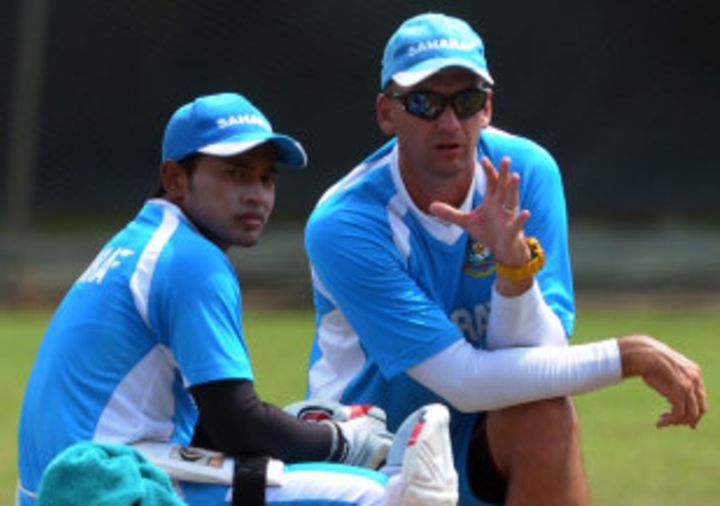What New Zealand need to succeed in Bangladesh
Five points to keep in mind as they play in alien conditions and try not to repeat the mistakes made in the 2010 one-day series loss

New Zealand's first Test tour to Bangladesh since 2008 is underway. We look at the key factors for the team to consider if they are to succeed in the Tests and limited-overs.
Avoid match-fixing distractions
Seven Bangladeshis were charged with match-fixing by the ICC; another two were charged for not reporting corruption during the Bangladesh Premier League in February-March. Those charged with fixing offences have been provisionally suspended, but the issue is still swirling around the Bangladesh game. New Zealand coach Mike Hesson said they won't discuss it as a team because they will have enough difficulty adapting to the conditions.
Recent history
Hesson's right in his observation above. In 2008, New Zealand won the two-Test series 1-0, but only after Daniel Vettori (batting at No. 4 for 76) and Aaron Redmond (surviving five and a half hours for 79) hauled in 317 to win by three wickets in the first Test - the second-highest chase in New Zealand's history. In 2010, when New Zealand last toured, they were beaten 4-0 in the one-dayers. However, New Zealand did beat South Africa in a 2011 World Cup quarter-final in Dhaka. Hesson says any suggestion they should whitewash the hosts is "an uneducated view, given how well they play at home. It's a cauldron."
Bangladesh coach Shane Jurgensen
Jurgensen mentored in the New Zealand ranks as bowling coach from December 2008 to August 2011. In the modern world of mercenary coaching he's in a prime position to know the visitors' strengths and weaknesses. "We know we'll be facing a lot of spin and they'll be well prepared," Hesson said. That view was borne out by the lack of grass on the first Test pitch pre-match.
Patience with the conditions
The expectation is wickets will start damp and possibly spin early before flattening out into good batting tracks. National selection manager Bruce Edgar is expecting a "war of attrition". He said a modest run-rate of 2.5 to three runs an over should initially be acceptable, because that figure can extend to five runs an over later in the Test.
Preparation is everything
Scarred by a poor build-up to last year's West Indies tour which triggered a host of flaccid results, there appears to be a meticulous focus on acclimatising to the subcontinental climate and pitch conditions. The New Zealand Test squad had a nine-day pre-tour camp in Sri Lanka from September 22, and unfortunately the three-day warm-up match in Chittagong was washed out. In the meantime the New Zealand A side, including five of the Test squad - Corey Anderson, Doug Bracewell, Mark Gillespie, Tom Latham and Ish Sodhi - had a slate of first-class and limited-overs matches in India and Sri Lanka. Hesson says: "When players are picked, we don't want to be exposing them for the first time in those conditions. We want players who have already worked out a method of trial and error to get by in the subcontinent."
Andrew Alderson is cricket writer at New Zealand's Herald on Sunday
Read in App
Elevate your reading experience on ESPNcricinfo App.